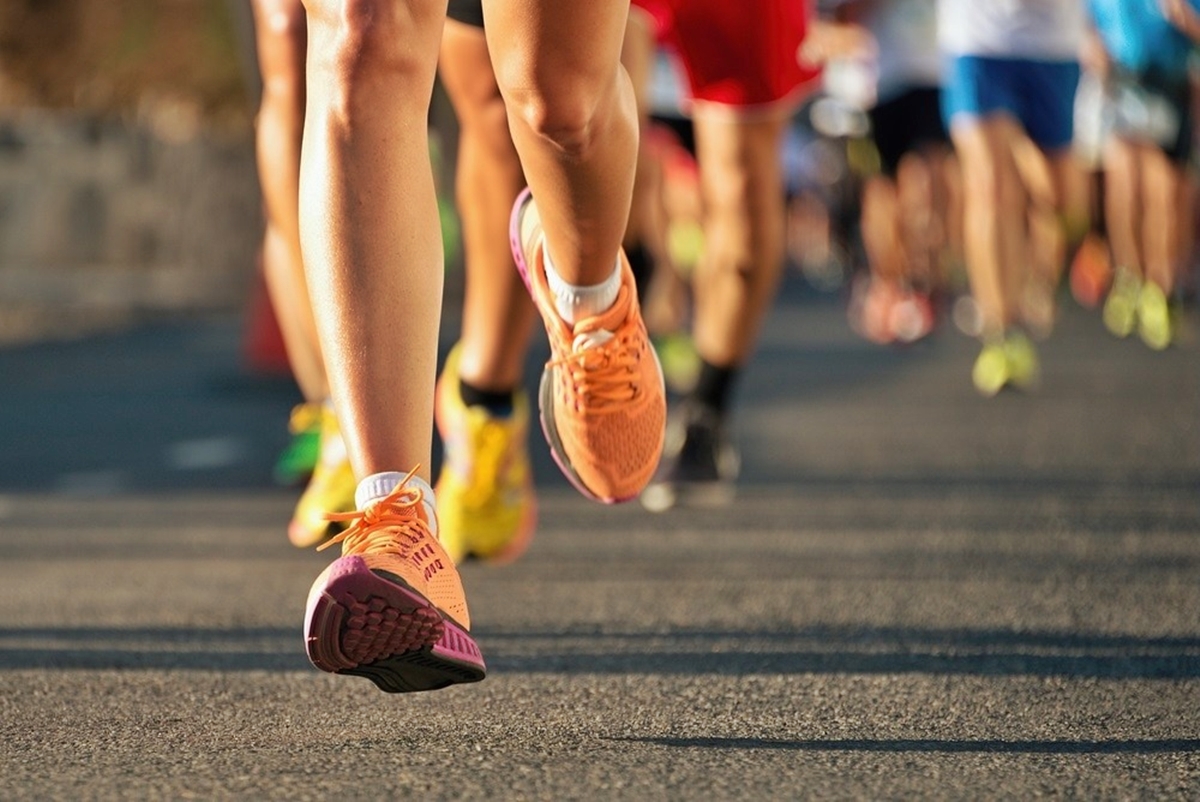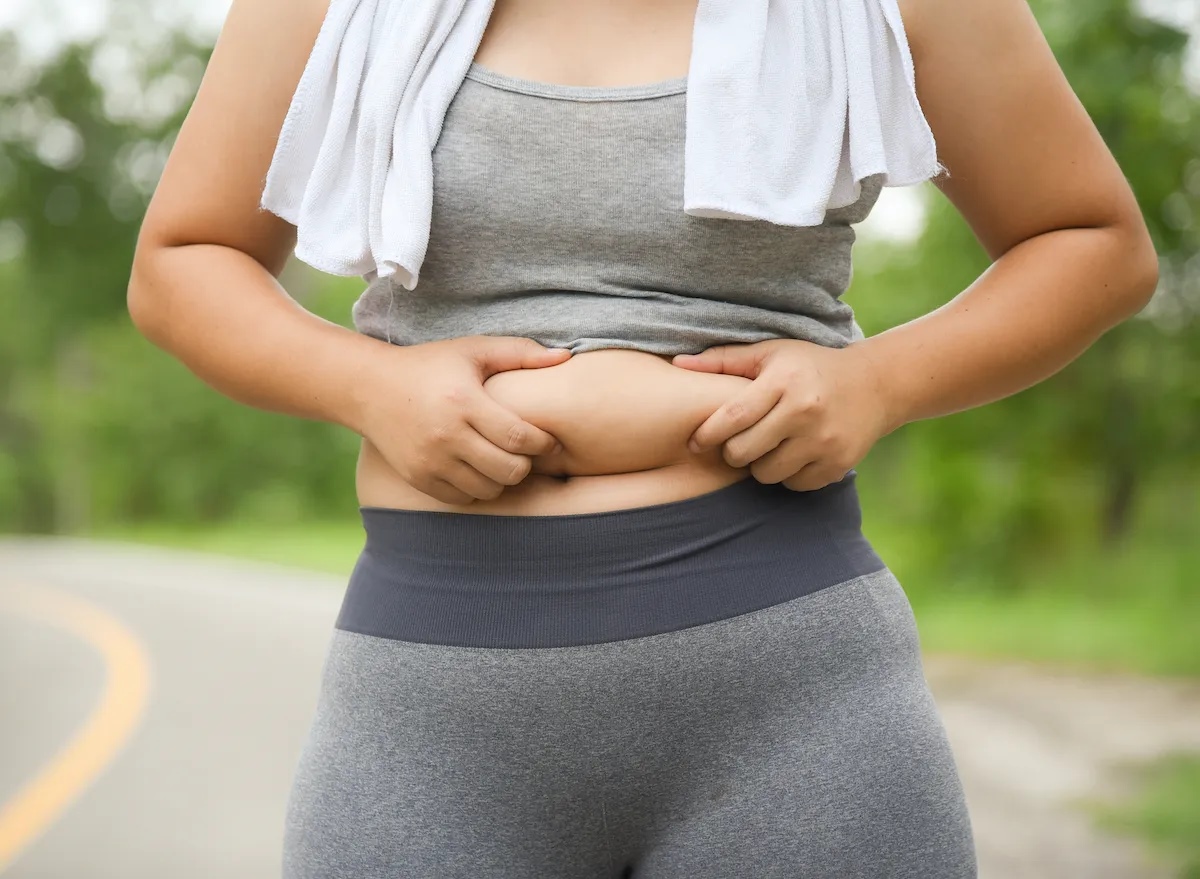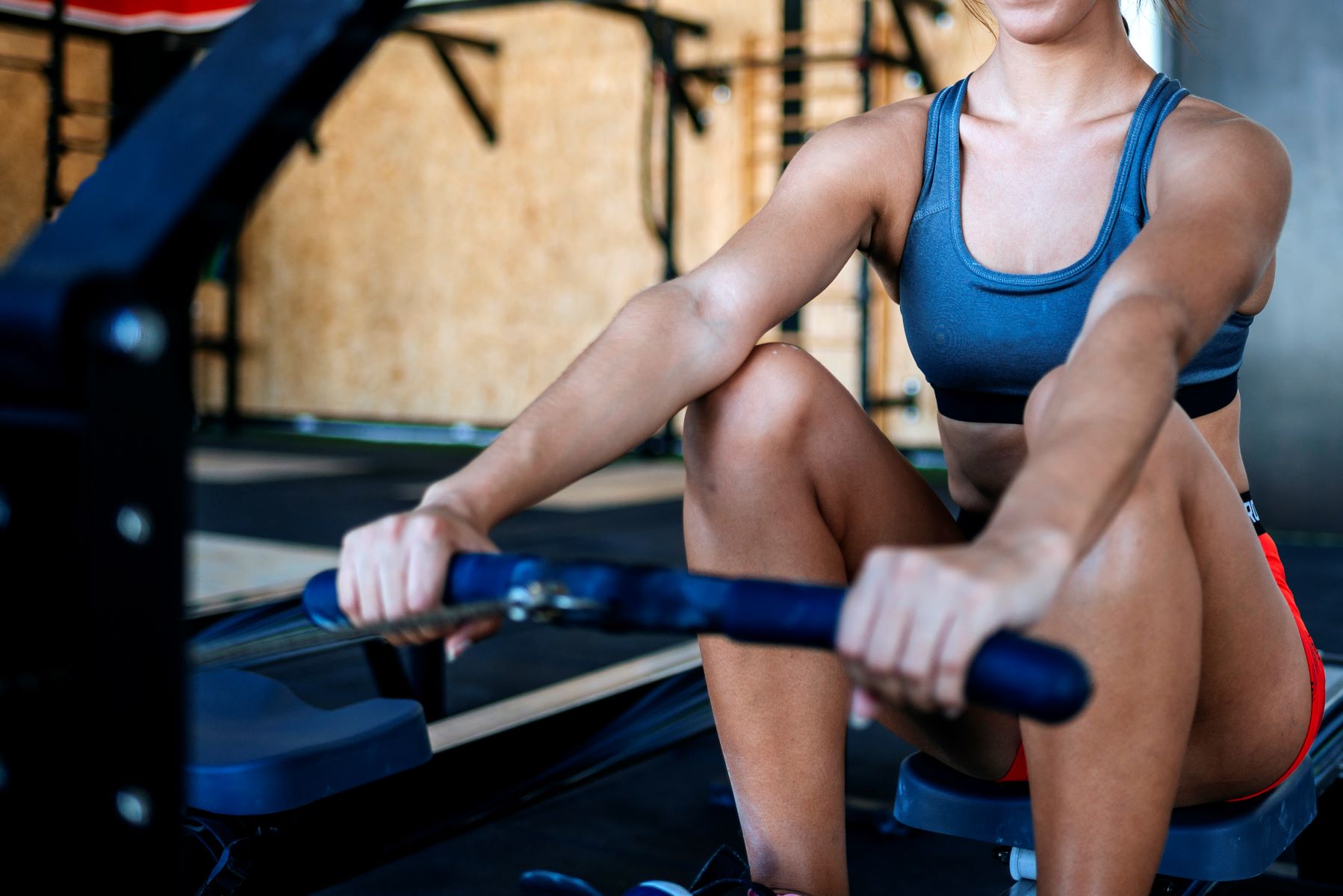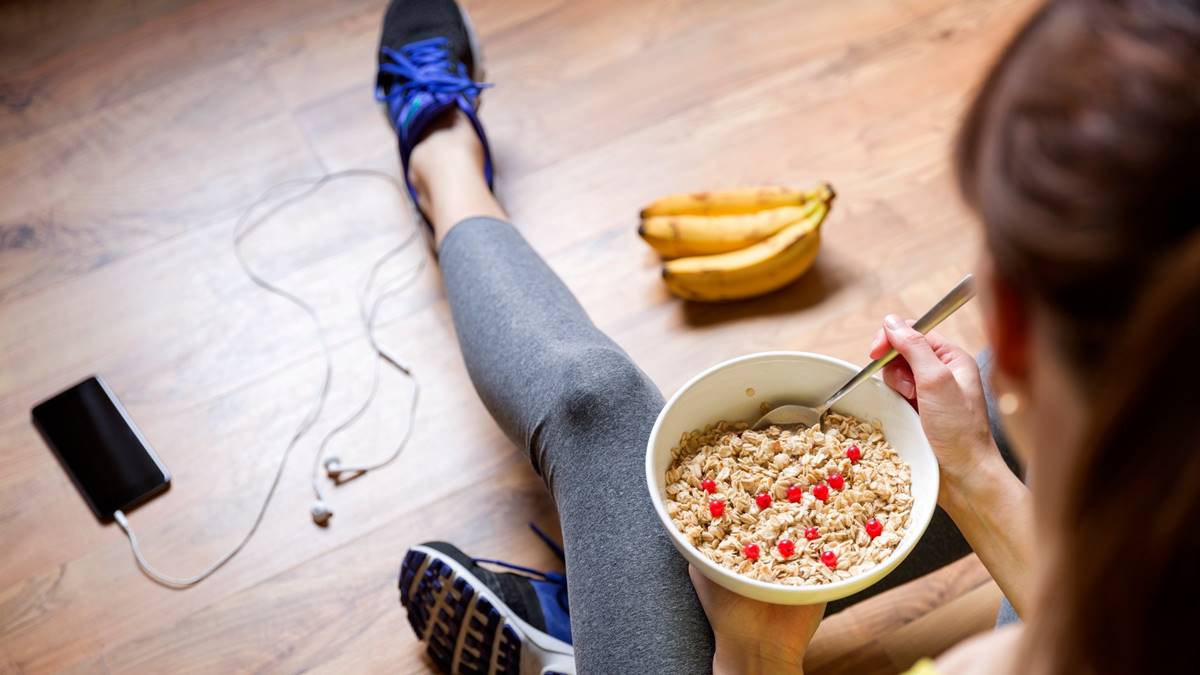Home>Misc>Featured>What To Eat After A Workout To Gain Muscle
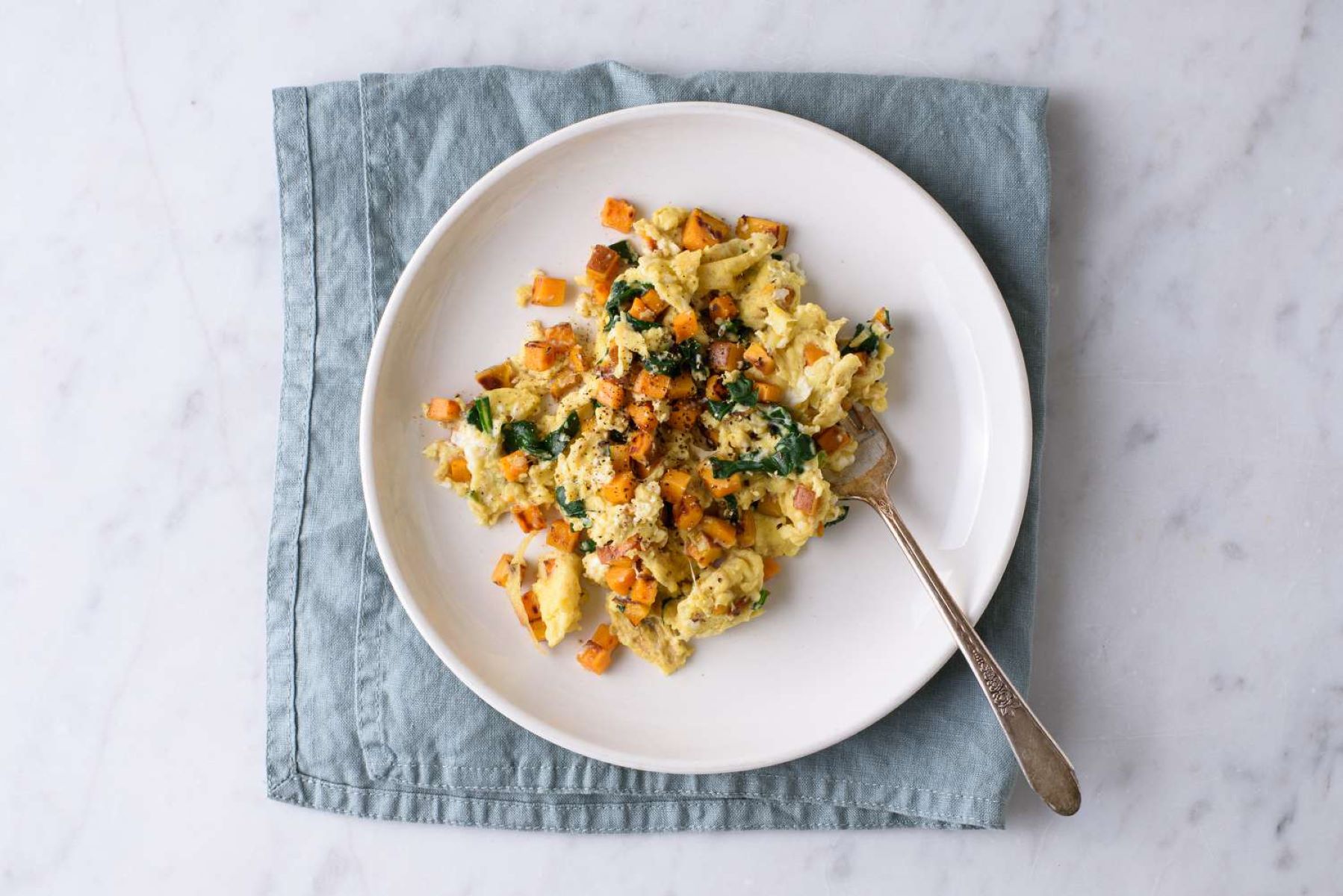

Featured
What To Eat After A Workout To Gain Muscle
Modified: August 19, 2023
Discover the best post-workout foods to fuel your muscles and promote gains! This featured guide provides expert tips and recommendations for optimal muscle growth.
Why Post-Workout Nutrition Matters
When it comes to achieving your fitness goals, what you eat after a workout is just as important as the exercise itself. The post-workout period is a critical time for muscle recovery and growth. During a workout, your muscles undergo stress and fatigue, and the nutrients you consume afterwards play a crucial role in repairing and rebuilding them.
One of the main reasons why post-workout nutrition is important is muscle protein synthesis (MPS). This process involves the creation of new muscle protein to repair and replace damaged muscle tissue. Consuming protein-rich foods after a workout provides the essential amino acids needed for MPS to occur effectively. These amino acids act as building blocks for muscle growth and repair.
In addition to muscle protein synthesis, post-workout nutrition also helps replenish glycogen stores. During exercise, your body uses glycogen, which is stored glucose, as a primary fuel source. When glycogen levels are depleted, it can lead to muscle fatigue and impaired performance in subsequent workouts. Consuming carbohydrates after a workout helps restore glycogen levels, ensuring that your muscles have the energy they need for future workouts.
Furthermore, post-workout nutrition aids in recovery by reducing muscle soreness and inflammation. Intense exercise triggers oxidative stress and causes microscopic damage to muscle fibers. Eating foods rich in antioxidants, such as fruits and vegetables, can help combat inflammation and oxidative stress, promoting faster recovery.
Additionally, proper post-workout nutrition supports hormone balance, including the hormones responsible for muscle growth and fat loss. Insulin, for example, plays a crucial role in transporting nutrients to the muscles, promoting muscle protein synthesis. Consuming a balanced post-workout meal or snack can help optimize insulin levels and support muscle growth.
Overall, post-workout nutrition can significantly impact your fitness progress. By fueling your body with the right nutrients after a workout, you enhance muscle recovery, promote muscle growth, replenish energy stores, and reduce muscle soreness. Neglecting post-workout nutrition can hinder your progress, as your body may struggle to repair and rebuild muscle tissue effectively.
Protein-Rich Foods for Muscle Recovery
Protein is a key nutrient for muscle recovery and growth. Including protein-rich foods in your post-workout meal or snack can help provide the essential amino acids your muscles need to repair and rebuild. Here are some excellent sources of protein to incorporate into your post-workout nutrition plan:
- Lean Meats: Chicken breast, turkey, lean cuts of beef, and fish are all excellent sources of high-quality protein. These meats are not only rich in amino acids but also contain essential nutrients like iron and zinc that support muscle health.
- Eggs: Eggs are a complete protein, meaning they contain all nine essential amino acids. They also offer a good balance of protein and healthy fats, making them an ideal post-workout food.
- Greek Yogurt: Greek yogurt is a versatile and protein-packed option. It contains more protein than regular yogurt and is also a good source of calcium. Add some berries or granola for additional carbohydrates and flavor.
- Cottage Cheese: Cottage cheese is another dairy-based protein source rich in casein protein. Casein is a slow-digesting protein that provides a sustained release of amino acids, making it an excellent option for post-workout recovery.
- Plant-Based Proteins: If you follow a vegetarian or vegan lifestyle, there are plenty of plant-based protein options available. Examples include tofu, tempeh, lentils, quinoa, and chickpeas. These plant-based proteins also offer other essential nutrients and fiber.
Incorporating these protein-rich foods into your post-workout meals or snacks can help optimize muscle recovery and growth. Aim to consume around 20-30 grams of protein within 1-2 hours after your workout to provide your muscles with the necessary building blocks for repair and growth.
Carbohydrates for Muscle Glycogen Replenishment
Carbohydrates play a critical role in post-workout nutrition as they help replenish depleted muscle glycogen stores. Glycogen is the stored form of glucose in your muscles and acts as a primary source of fuel during exercise. Consuming carbohydrates after a workout helps replenish glycogen levels, ensuring your muscles have the energy needed for future workouts and optimal performance.
When choosing carbohydrates for post-workout nutrition, focus on high-quality, complex carbohydrates that provide a steady release of energy. Here are some excellent choices:
- Whole Grain Foods: Opt for whole grain bread, pasta, or rice, as they contain fiber and other essential nutrients in addition to carbohydrates. These foods provide a sustained release of energy and promote satiety.
- Fruits: Fruits are a natural source of carbohydrates and offer a variety of vitamins, minerals, and antioxidants. Options like bananas, berries, and oranges are particularly beneficial due to their high carbohydrate content and antioxidant properties.
- Sweet Potatoes: Sweet potatoes are an excellent source of complex carbohydrates, fiber, and beta-carotene. They provide a steady release of energy while offering numerous health benefits.
- Quinoa: Quinoa is a nutrient-rich pseudocereal that contains high-quality carbohydrates, protein, and essential amino acids. It is also gluten-free and a great choice for those with dietary restrictions.
It is important to note that the amount of carbohydrates needed for glycogen replenishment depends on factors like exercise intensity, duration, and individual goals. As a general guideline, aim for 0.5-0.7 grams of carbohydrates per pound of body weight within the first few hours after your workout.
Keep in mind that incorporating carbohydrates into your post-workout nutrition plan is crucial, but it is also essential to choose the right type and quantity of carbohydrates for optimal muscle glycogen replenishment and overall health.
Healthy Fats for Overall Recovery
While protein and carbohydrates often take the spotlight in post-workout nutrition, healthy fats are also an essential component for overall recovery. Including the right fats in your diet can support hormone function, reduce inflammation, and provide a source of sustained energy. Here are some healthy fat options to consider:
- Avocado: Avocados are a rich source of monounsaturated fats, which can help reduce inflammation and support heart health. They also provide a good amount of fiber, vitamins, and minerals.
- Nuts and Seeds: Almonds, walnuts, chia seeds, flaxseeds, and hemp seeds are all packed with healthy fats, including omega-3 fatty acids. These fats have anti-inflammatory properties and can help with muscle recovery.
- Olive Oil: Olive oil is a staple in the Mediterranean diet and is known for its monounsaturated fats and antioxidant properties. Use it in salad dressings or for cooking to add a healthy dose of fats to your post-workout meals.
- Fatty Fish: Fish such as salmon, trout, and sardines are excellent sources of omega-3 fatty acids and high-quality protein. These fats can help reduce inflammation and support heart health.
- Coconut Oil: Coconut oil contains medium-chain triglycerides (MCTs), a type of fat that is quickly absorbed and used for energy. It can provide a quick source of fuel during and after workouts.
Incorporating these healthy fats into your post-workout meals or snacks can provide essential nutrients, support recovery, and promote overall well-being. However, it’s essential to be mindful of portion sizes, as fats are calorie-dense. Aim to include a serving of healthy fats alongside your protein and carbohydrates to create a balanced post-workout meal.
Hydration and Electrolytes for Optimal Muscle Function
Proper hydration is critical for overall health and plays a vital role in post-workout nutrition. When you exercise, you lose fluids through sweat, and it’s essential to replenish them to support optimal muscle function and recovery. In addition to water, electrolytes also play a key role in maintaining fluid balance and muscle function. Here’s why hydration and electrolytes are essential:
Water: Water is the best choice for hydration as it is readily available and free of calories or additives. Staying properly hydrated helps regulate body temperature, transport nutrients, lubricate joints, and support overall cellular function.
Electrolytes: Electrolytes are minerals that help maintain fluid balance and enable muscle contractions. The main electrolytes include sodium, potassium, magnesium, and calcium. During a workout, you lose electrolytes through sweat, and they need to be replenished to prevent dehydration and muscle cramps.
Post-workout hydration is crucial to restore fluid levels in your body. Aim to drink water or an electrolyte-rich beverage within the first hour after your workout. Here are some tips to optimize hydration and electrolyte balance:
- Drink water before, during, and after your workout to maintain hydration levels.
- Consider consuming an electrolyte beverage or adding electrolyte tablets to your water to replenish lost minerals.
- Eat fruits and vegetables that are naturally high in electrolytes, such as bananas, oranges, spinach, and celery.
- Avoid excessive alcohol and caffeinated beverages as they can increase fluid loss.
- Monitor your urine color as an indicator of hydration levels. Pale yellow or clear urine suggests proper hydration, while dark yellow urine may indicate dehydration.
Remember, staying hydrated is not only important for muscle recovery but also for overall health and well-being. Make it a habit to prioritize hydration before, during, and after your workouts to optimize muscle function and support your fitness goals.
Timing and Portion Control for Post-Workout Meals
The timing and portion control of your post-workout meals play a crucial role in optimizing muscle recovery and promoting overall fitness. Here are some key considerations to keep in mind:
Timing: It’s important to consume a post-workout meal or snack within the first hour after your workout. This window, often referred to as the “anabolic window,” is when your muscles are most receptive to nutrient absorption. Consuming nutrients during this time can enhance muscle protein synthesis and promote faster recovery. If you can’t have a meal immediately after your workout, try to have a protein shake or a small snack to tide you over until you can have a balanced meal.
Protein: Aim to include a good source of protein in your post-workout meal or snack. As mentioned earlier, protein is crucial for muscle recovery and growth. Aim for around 20-30 grams of protein, depending on your body weight and goals. This can come from sources like chicken, eggs, Greek yogurt, or plant-based proteins if you follow a vegetarian or vegan lifestyle.
Carbohydrates: Including carbohydrates in your post-workout nutrition is important for replenishing glycogen stores and providing energy for muscle recovery. Aim for a balanced ratio of carbohydrates to protein in your post-workout meal. Opt for complex carbohydrates like whole grains, fruits, or sweet potatoes, which provide a steady release of energy.
Fats: While it’s crucial to include healthy fats in your overall diet, it’s generally recommended to keep the fat content in your post-workout meal relatively low. Fats can slow down digestion and absorption of other nutrients, which is not ideal during the post-workout period when you want nutrients to reach your muscles quickly. Save your larger fat intake for meals further away from your workout.
Portion Control: While it’s important to ensure you’re consuming enough nutrients, portion control is also essential. Overeating after a workout can hinder your progress and lead to unnecessary calorie intake. Pay attention to portion sizes and listen to your body’s hunger and fullness cues. If you’re unsure about portion sizes, consulting with a registered dietitian or nutritionist can be helpful.
Remember, everyone’s nutritional needs may vary based on factors such as workout intensity, duration, and individual goals. It’s important to experiment with different post-workout meals and snacks to find what works best for you and supports your fitness journey.
Sample Post-Workout Meal Ideas for Muscle Gain
After a workout, it’s important to refuel your body with the nutrients it needs for muscle recovery and growth. Here are a few sample post-workout meal ideas that incorporate the key elements of protein, carbohydrates, and healthy fats:
1. Grilled Chicken Breast with Roasted Sweet Potatoes and Steamed Broccoli:
- Grilled chicken breast: A lean source of protein to support muscle repair.
- Roasted sweet potatoes: Complex carbohydrates to replenish glycogen stores.
- Steamed broccoli: A source of vitamins, minerals, and fiber.
2. Salmon Salad with Quinoa and Avocado:
- Grilled or baked salmon: A rich source of omega-3 fatty acids and high-quality protein.
- Quinoa: A complete protein and complex carbohydrate to promote muscle recovery.
- Avocado: Healthy fats and fiber for satiety and overall health.
3. Greek Yogurt with Mixed Berries and Almonds:
- Greek yogurt: A protein-packed option to support muscle repair.
- Mixed berries: Antioxidants and vitamins to combat inflammation.
- Almonds: Healthy fats and fiber for sustained energy.
4. Tofu Stir-Fry with Brown Rice and Vegetables:
- Tofu: A plant-based protein source that offers essential amino acids.
- Brown rice: Complex carbohydrates to replenish glycogen stores.
- Assorted vegetables: Provide vitamins, minerals, and additional fiber.
5. Omelette with Spinach and Whole Wheat Toast:
- Eggs: A complete protein source that contains essential amino acids.
- Spinach: Rich in antioxidants, vitamins, and minerals.
- Whole wheat toast: A source of complex carbohydrates and fiber.
Remember, these are just sample ideas, and you can customize your post-workout meals based on your personal preferences and dietary needs. The key is to include a balance of protein, carbohydrates, and healthy fats to support muscle recovery and promote muscle gain. It’s also essential to consider portion sizes and listen to your body’s cues of hunger and fullness.

